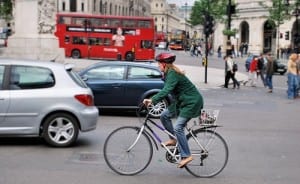The big question: too many people on the planet?
By Katherine Aitchison, on 17 May 2013
There are currently 6.9 billion people living on our planet and with that figure set to rise, many people are worried about how long the Earth will be able to sustain us all and cope with the damage that we are inflicting on it.
The UCL Grant Museum of Zoology has a “case of extinction” featuring, among others, dodo and Tasmanian wolf (thylacine) specimens. Both of these species were hunted to extinction by humans and since their deaths many other species have faced the same fate. Which led Dean Veall, the museum’s learning and access officer, to ask the Big Question: are there too many people on the planet?
When the question was first posed to a packed JZ Young lecture theatre, after a glass of wine and a mooch around the Grant Museum’s always fascinating collection, the answer from the crowd was a resounding ‘yes’. But over the course of the night, we stood to have our opinions tested and potentially changed.
 Close
Close





